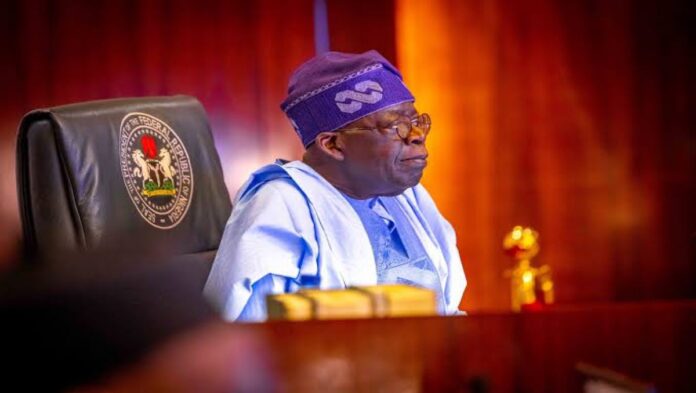The new president of Nigeria, Bola Ahmed Tinubu, has turned what seemed like a good idea into a policy, which could potentially be a timely response to the crumbling educational system of West Africa’s largest economy. However, this recently signed policy may actually further deteriorate the educational system or ruin the prospects of citizens who have faced challenging pasts and are now confronted with a bleak future.
In a recent development, the president, likely motivated to rectify the evident mistakes of his predecessor, with whom he shares the umbrella of the All Progressive Congress (APC), has signed several bills into law, some of which were widely accepted until now. One such bill, the Student Loan Bill, has left many Nigerians pondering whether it genuinely favors the average Nigerian.
The aim of this new bill in Nigeria is to facilitate easier access to higher education for Nigerian students through interest-free loans. These loans would be obtained from the Nigerian Education Bank, established in this Act to provide education for Nigerians and serve other related purposes.
Sponsored by Olufemi Hakeem Gbajabiamila, the Speaker of the House of Representatives of Nigeria, the bill proposes that Nigerian students can acquire loans at interest-free rates. It also includes provisions for consequences in case of default, stating that students who fail to repay their loans or anyone found aiding defaulters may face penalties such as two years imprisonment, a fine of N500,000, or both, as reported by The PUNCH.
While this may appear to be an excellent idea, there are factors and faults to consider, such as the escalating rate of unemployment in the country since 2015. Repaying a loan necessitates guaranteed income, but the question remains as to whether there is a guarantee of employment that can provide the necessary income.
Nigeria has struggled with high unemployment rates for many years. According to the National Bureau of Statistics (NBS) in Nigeria, the unemployment rate in the country was 33.3% in the fourth quarter of 2020, meaning a significant portion of the working-age population was without employment during that period.
The president seems to be leaving the ability for student loan repayment to chance, especially if unemployment isn’t adequately addressed. Perhaps the logical progression should have been to create a conducive environment for better employment opportunities before making such a decision. However, it seems that there is a plan written in the stars, one that remains inaccessible to the ordinary Nigerian for now.
From a technical standpoint, one might expect that the student loan policy is being prepared for the removal of any subsidies enjoyed by Nigerian students in tertiary institutions within the country. This implies that tuition fees in such institutions will skyrocket, rendering them unaffordable for the average Nigerian, thereby forcing them to seek student loans.

Should a country grappling with illiteracy issues, particularly in its Northern region, proceed to halt subsidized education? Northern Nigeria, like many other regions in the country, faces challenges regarding illiteracy rates. While these rates can vary among different states and communities, the Northern region generally experiences higher illiteracy rates compared to the South. Factors contributing to the higher illiteracy rates in the North include limited access to education, cultural practices, and socioeconomic challenges.
The president must have a plan to encourage those already discouraged to attend school at an unaffordable rate, only to accumulate debt that they must service for a significant portion of their youth.
While the United States of America has been a source of inspiration for this policy, it’s crucial to consider a few aspects of the U.S. student loan situation:
1. Total Student Loan Debt: According to the Federal Reserve, the total outstanding student loan debt in the United States surpassed $1.7 trillion as of the second quarter of 2021.
2. Number of Borrowers: The Institute for College Access & Success reported that approximately 43 million Americans hold student loan debt.
3. Average Student Loan Debt: The average student loan debt per borrower in the United States is approximately $39,351, as reported by the Institute for College Access & Success.
4. Loan Delinquency and Default Rates: According to the Department of Education, the delinquency rate for student loans in the third quarter of 2021 was 10.8%. Additionally, the default rate for federal student loans within three years of entering repayment was 10.8% for the 2017 fiscal year.
5. Impact on Financial Well-being: Student loan debt can significantly impact individuals’ financial well-being. A survey conducted by the Federal Reserve found that student loan debt can delay major life milestones such as buying a home, getting married, and starting a family.
6. Disproportionate Impact on Certain Groups: Student loan debt disproportionately affects certain groups, including individuals from lower-income backgrounds and minority communities. These groups often face higher debt burdens and struggle more with repayment.
While this policy may be a good one, it may not be timely.
Victor Ahonsi

